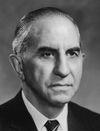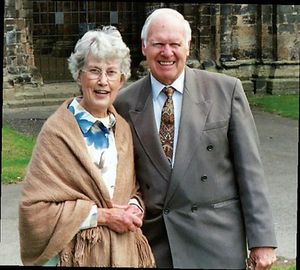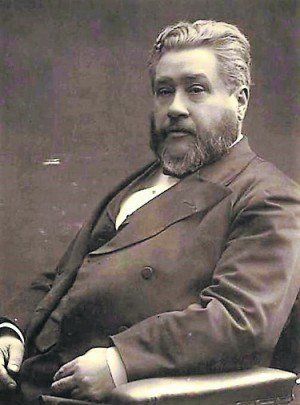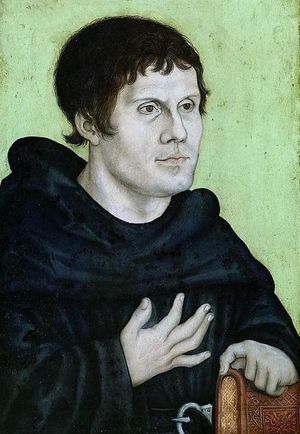The word ‘providence’ has an unfamiliar ring to the modern ear. This stems largely from our loss of consciousness of the divine sovereignty.
‘Providence’ is the outworking of God’s sovereignty whereby all events are directed to bring about those purposes of glory and good for which creation was made. The Christian doctrine of providence rests on the teaching of the Bible, but the unfolding of it is seen in the world and in our lives.
The puritan Thomas Boston said, ‘Whoever would walk with God must be due observers of the Word and providence of God, for … in the one we see what [God] says; in the other what he does. These are the two books that every student of holiness ought to be much conversant in’.
Christ’s preciousness
Consider these five ways in which observing or noting providence brings blessing to Christians. First, it makes Christ more precious to us.All the mercies which providence conveys to the child of God are purchased by the blood of Christ. It is through Jesus that streams of mercy flow to us.
Paul says to the Christians at Corinth, ‘All things are yours’. How can all things be ours? It is because ‘you are Christ’s and Christ is God’s’. The spiritual and temporal mercies that we enjoy were once forfeited by our sin, but have been restored to us in Christ. ‘He that spared not his own Son but gave him up for us all, how shall he not with him freely give us all things?'(Romans 8:32).
All blessings are the fruit of Christ’s intercession for us in heaven. Paul says of Christ in Romans 8:34: ‘He is at the right hand of God’. That is what makes all the difference. We are united to him who is on the throne of the universe and has everything under his control.
Secondly, observing providence makes us recognise afresh that God is God. The mystery of providence by John Flavel is based on Psalm 57:3:’I will cry unto God most high; unto God that performs all things for me’. He is sovereign.
God’s purpose in dark (frowning) providences is: ‘to discover himself in a way suitable to himself and his glorious perfections, and to show that his thoughts are not our thoughts and his ways are not our ways’.
God’s supremacy
We are reminded of A. W. Tozer’s words, over 50 years ago: ‘The concept of God current in the middle years of the 20th century is so decadent as to be beneath the dignity of the most high God’.
The consideration of God as the most high and supreme Lord was at the foundation of our puritan forefathers’ godliness. Lord Macaulay’s assessment is true: ‘The Puritans were men whose minds had derived a peculiar character from the daily contemplation of superior beings and eternal interests.
‘Not content with acknowledging God in general terms and overruling providence they habitually ascribe every event to the will of the great Being for whose power nothing was too vast, but for whose inspection nothing was too minute’.
The puritan believer humbled himself before all the Lord’s dealings with him. If we do not contemplate these reverently, then we are impoverished and become stunted in our spiritual growth.
Thirdly, noting God’s providence makes us more trustful and contented. This is what the Lord Jesus Christ taught his disciples in the Sermon on the Mount. He said, ‘Behold, the fowls of the air, for they sow not, neither do they reap, nor gather into barns, yet your heavenly Father feeds them. Are ye not much better than they?’ (Matthew 6:25).
The Father’s love
Christ is arguing from the lesser to the greater. If our heavenly Father provides for such creatures that do not have souls, is it not true that he will care for his children?
We live in constant dependence upon him. We are promised for just ‘today’ the supply for our needs. Each providence has the love of God written on it; that is what makes it so precious and such a joy to the Christian.
Fourthly, observing providence helps to prove our Christianity genuine.In 1 Peter we are told that God tries the faith of his people through affliction: ‘that the trial of your faith being much more precious than gold that perishes, though it be tried with fire, might be found unto the praise and honour and glory at the appearing of Jesus Christ’ (1 Peter 1:7).
Thomas Boston wrote another work entitled The crook in the lot. The ‘crook’ [affliction] in the ‘lot’ [our unavoidable circumstances] can take many forms, but Boston maintains that it is the great engine of providence in making men appear in their true colours.
Andrew Fuller maintains that afflictions refine some and consume others, just as the sun melts the ice and hardens the clay. A fiery trial hardens and turns some people against God, but it melts the true child of God.
The Westminster Confession of Faith says that God often ‘leaves for a season his own children to manifold temptation or trials and the corruption of their own hearts to chastise them for their former sins, to discover unto them the hidden strength of corruption and deceitfulness of their hearts, that they may be humbled and raised into a more close and constant dependence for their support upon himself and to make them more watchful against all future occasions of sin and for sundry other just and holy ends’ (5:5).
Spiritual sacrifice
Fifthly, observing providence produces fruit in our lives. In John 15 our Lord compares Christians to branches in the vine. He is the vine and his Father the vine-dresser. The Father looks for fruit in the branches. Such fruit is dependent on union with Christ, but its quality is related to the Father’s pruning.
The cutting knife can be sharp. Fruit trees need to be pruned if they are to bring forth fruit. The Christian needs to feel the sharp knife of God in his life if there is going to be fruitfulness. The whole purpose of dark providences is the production of spiritual fruit for the glory of God.
C. H. Spurgeon faced many sorrows. With his own experience in mind, he warned his students at the end of his life: ‘In the matter of faith healing, health is set before us as if it were a great thing to be desired, and that with all other things.
‘Is it so? I venture to say that the greatest earthly blessing that God can give to any of us is health, with the exception of sickness. Sickness has frequently been of more use to the saints of God than health has. A sick wife, a newly-dug grave, poverty, slander, sinking of spirit might teach us lessons nowhere else to be learned so well. Trial brings us to the realities of religion’.
His son, Charles Spurgeon said, ‘I know of no one who could more sweetly than my dear father impart comfort to bleeding hearts and sad spirits. As the crushing of the flower causes it to yield its aroma, so he having endured the long-continued illness of my beloved mother, and also constant pains in himself, was able to sympathise more tenderly with all sufferers’.
Perfect work
Finally, observing providence prepares us for glory.Thomas Watson says that when God lays a man on his back then he begins to look up to heaven. God teaches us that the greatest blessing of all is himself.
In Psalm 73 the psalmist had a problem with regard to the wicked and their prosperity, but when he went into the house of God he saw things from a different perspective. ‘Whom have I in heaven but thee? And there is none upon the earth that I desire beside thee. My flesh and my heart faileth but God is the strength of my heart, and my portion for ever’ (Psalm 73:25-26).
That man is ready for heaven who has found God as his portion on earth. God is the all-sufficient portion of his people. If we lived in comfort and ease and had all the good things of this present life, how would this fit us for heaven? That is the deception of ‘the health and wealth gospel’.
There is no ultimate blessedness here on earth. Thomas Watson says, ‘the vessels of mercy are first seasoned with affliction and then the wine of glory is poured in at the end of the day’.
The words of James Durham are a fitting conclusion: ‘When a whole contexture and web of providence about the church and every individual member withal shall be wrought out, and in its full length and breadth spread forth in the midst of all the redeemed … there will not be found one misplaced thread or any wrong set colour in it all. God’s perfect work will be manifested to all at the end of the day’.


















